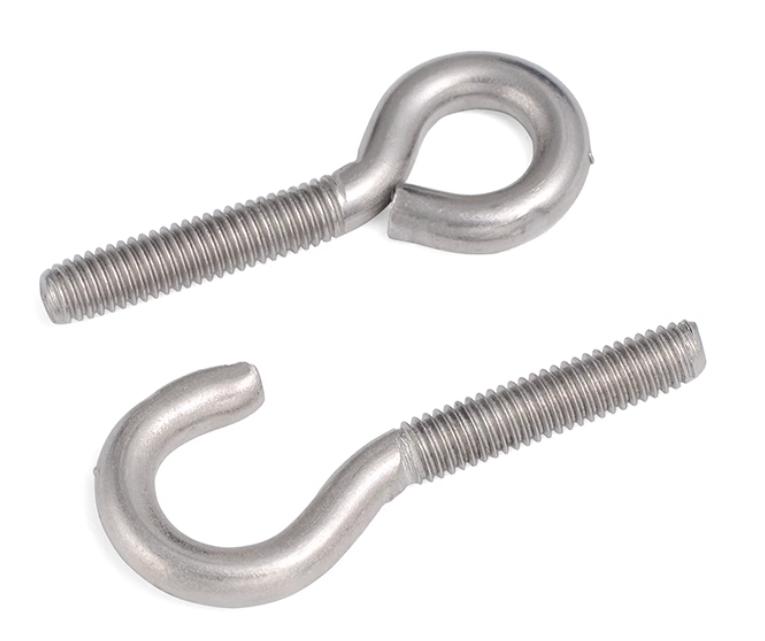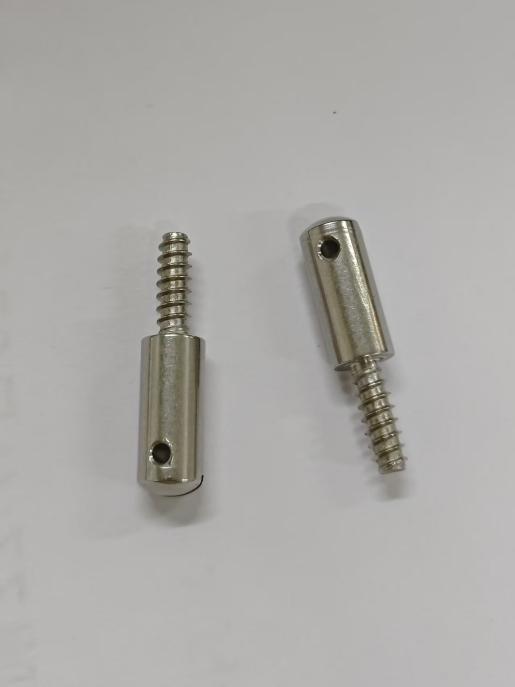9 Types of Anti-corrosion Screw Coatings: How to Choose
Screws are crucial in manufacturing, construction and other applications but they are also susceptible to corrosion, and especially in extreme conditions. The effects of corrosion can diminish the efficiency on screws and can lead to structural failures. Anti-corrosion screws serve as a protective barrier against rust and extend the service life in demanding environments. The remainder of this article examines principal coating options, typical applications, and step-by-step guidance for choosing the best solution for your specific project.

Table of Contents
Why Anti-Corrosion Screw Coatings are Essential
Screws that sit out in water, harsh chemicals, or brutal weather can rust almost overnight, ruining equipment and draining repair funds. That’s why putting tough o-rings or specialty paint on every fastener is smart; it stretches the service life, keeps machines running, and protects workers.
1. Protection from hostile environments
Boat, outdoor building, or factory floor fasteners are exposed to salt, water, and airborne contaminants that promote oxidation. An anti-corrosion coating acts as a shield between steel and these aggressors, greatly reducing the lifespan of the screw and the load-carrying capacity of the assembly it builds.
2. Keeping Joints Strong under Load
Over time, bare screws corrode, get brittle, and bend or fracture under normal stress, weakening the component they join together. Coated screws do not undergo such deterioration but retain their tensile strength and ensure load-carrying joints are robust for their anticipated life duration.
3.Reducing Maintenance and Replacement Costs
Without protection, screws in harsh, corrosive environments will corrode and require repeated replacement, generating escalating labor and parts expenses. A superior anti-corrosion coating slows that degradation, lowering repair turns and the dollars spent on materials and labor.
4.Boosting Safety and Conformance
In safety-related sectors such as automotive, aerospace, construction, and energy, a broken corroded screw may trigger accidents or even deaths. Regulations therefore mandate components to be corrosion-resistant to prevent such accidents.
5.Enhancing Aesthetic and Functional Performance
Corrosion can weaken screws but also causes unattractive staining and degrading the surface of the finished product. Coatings aid in maintaining a clean appearance, particularly in the visible or ornamental applications as well as ensuring that components work smoothly for example, for threaded or moving assemblies.
6.Compatibility with a Variety of Materials
When screws are used conjunction with other types of metals (like copper or aluminum) galvanic corrosion could be caused by electrochemical reactions. Specialized coatings protect the screw from different materials to reduce the risk of this happening and ensuring compatibility between the materials.

Commonly Used Types of Anti– corrosion Screw Coatings
1. Zinc Coatings (Galvanization)
Description
Zinc coatings have been the most popular anti-corrosion screw coating. They serve as a sacrificial layer, which corrodes prior to the material of the screw.
Types
- Hot-dip galvanizing: The immersion of screws in hot zinc to create a strong long-lasting coating.
- Electroplating: The thin zinc coating that is applied by electrochemical processes.
Advantages
Cost-effective.
Zinc-coated screws offer good protection against air and moisture exposure.
Applications
Construction projects, outdoor structures and equipment.
2. Phosphate Coatings
Description
Coatings with phosphate The coatings of phosphate in HTML3 are Chemical transformation layers that prepare screws for finishing or for lubrication.
Advantages
- Enhances adhesion to paints or oil lubricants.
- Provides moderate corrosion resistance.
Applications
Pre-treated screws for industrial and automotive assemblies.

3. Epoxy Coatings
Description
Epoxy-based screw coatings make an extremely durable, hard and chemical-resistant layer. It is applied by the dipping or spraying.
Advantages
- A great resistance to chemicals water and scratching.
- Durable protection for tough environments.
Applications
Pipelines, industrial equipment, and automobile parts.
4. Teflon (PTFE) Coatings
Description
Polytetrafluoroethylene (Teflon) screw coatings offer a non-stick surface with exceptional resistance to corrosion and extreme temperatures.
Advantages
- A high resistance to saltwater and humidity.
- Easy assembly and low friction.
Applications
Food processing, marine environments medical equipment and other food processing.

5. Powder Coatings
Description
Dry powder is applied electrostatically onto screws and then dried under the heat to form a sturdy and appealing surface.
Advantages
- UV-resistant and available in a variety of shades for aesthetic reasons.
- Superior resistance to abrasion and chipping.
Applications
Consumer goods, appliances as well as decorative screws.
6. Ceramic Coatings
Description
Ceramic-based coatings for screws use the latest materials to offer a strong protection against corrosion as well as high temperatures.
Advantages
- Amazing resistance to wear and heat.
- The application has minimal environmental impact.
Applications
Aerospace, marine and high-temperature industrial applications.
7. Nickel Coatings
Description
Nickel-coatedc screws employ electroplating, or electroless plating. They offer a sleek, corrosion-resistant surface.
Advantages
- A high resistance to wear and oxidation.
- Enhances the look of the screw.
Applications
Electronics, decorative applications as well as precision tools.

8. Dacromet and Geomet Coatings
Description
These are zinc-aluminum-based flake made of water. screw coatings that are applied by spraying or dipping, and then dried by heating.
Advantages
- Excellent corrosion resistance.
- Eco-friendly due to a lower the amount of heavy metals in the environment.
Applications
Construction, automotive, and wind energy industries.
9. Black Oxide Coatings
Description
Chemical treatment that forms an extremely thin dark oxide layer on the surface of the screw.
Advantages
- Enhances the appearance and offers moderate resistance to corrosion.
- Low-cost and non-conductive.
Applications
Tools, indoor applications and ornamental hardware.

Key Factors to Consider When Choosing Anti-Corrosion Screw Coatings
This chart can help prioritize the elements based on the needs of the application and ensures the most appropriate option for anti-corrosion screw coatings.
| Factor | Description | Why It Matters | Example Considerations |
| Environmental Conditions | Be aware of exposure to moisture chemicals, salt as well as extreme temperatures. | Coatings have to withstand certain environmental conditions. | Marine environments require Teflon and ceramic coatings. |
| Durability Requirements | Take into consideration Abrasion resistance, wear resistance and resistance to impact. | Screws used in high-stress applications need more durable coatings. | Ceramic coatings or epoxy to protect industrial equipment. |
| Cost Constraints | Assess the budget against. durability and performance of the coating. | The project budget is balanced, while also ensuring sufficient security. | Zinc coatings are suitable for low-cost, general-purpose usage. |
| Aesthetic Needs | Check if the screws appear obvious or are decorative. | Aesthetic finishing enhances the aesthetic appeal in consumer-facing applications. | Powder coatings or black oxide for decorative screws. |
| Application Method | Review the compatibility of the coating process to screws and materials. | The coating process is guaranteed to not affect the integrity of the screw. | Small screws might require electroplating rather than hot-dip zinc. |
| Corrosion Resistance | Determine the amount of protection required for the application. | Different coatings have different levels of resistance to corrosion. | Dacromet for heavy-duty and automotive protection. |
| Temperature Tolerance | Determine the temperature ranges that are operational. | High-temperature applications require high-temperature resistant coatings. | Coatings made of ceramic for aircraft and furnace equipment. |
| Chemical Resistance | Be aware of the your exposure to alkalis, acids or solvents. | Coatings need to be resistant to chemical degradation in tough environments. | Teflon or epoxy coatings to chemicals processing equipment. |
| Longevity and Maintenance | Take into consideration the life span and requirements for re-coating. | Longer-lasting coatings are less prone to the cost of maintenance and replacement. | Dacromet is a durable product for industrial applications. |
| Environmental Impact | Examine the environmental impact and conformity in these screw coating pprocesses. | Certain coatings are more secure and are more environmentally sustainable. | Geomet coatings can be eco-friendly, low-VOC alternative. |
Summary
- Hazardous Environments: Concentrate on resistance to corrosion, resistance to chemical and tolerance to temperature.
- Budget Application: Prioritize cost constraints and coatings, such as zinc and phosphate.
- Aesthetic Projects: Be aware of aesthetics and apply black or powder oxide coatings.

Final Thoughts
From zinc for outdoor use to Teflon suitable for use in maritime environments. Choosing the right coating for anti-corrosion screws can be time-saving and cut future maintenance costs. Knowing what each finish offers and when it is most suitable under what conditions allows a company to make the best decision that suits its needs and runs more effectively.








